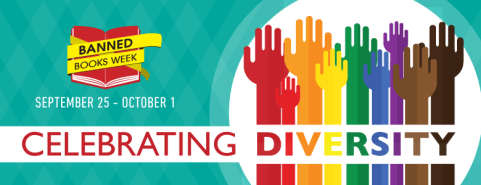On #BannedBooksWeek, Why Edward William Lane’s Arabic Lexicon Currently on ‘Disapproved’ List
It’s Banned Books Week in the United States, which is often touted as a celebration of banned literature, something relegated largely to the country’s margins or its past:
 Yet as a piece in this Sunday’s Guardian points out, many prisons in the United States remain a place where access to books is unreliable and banning is as mercurial as in any dictatorship. It might be How to Draw Manga or it might be The New Jim Crow, an important book about “mass incarceration in the age of color blindness” by scholar Michelle Alexander. Most prison book banners, it seems, don’t have to justify their decisions.
Yet as a piece in this Sunday’s Guardian points out, many prisons in the United States remain a place where access to books is unreliable and banning is as mercurial as in any dictatorship. It might be How to Draw Manga or it might be The New Jim Crow, an important book about “mass incarceration in the age of color blindness” by scholar Michelle Alexander. Most prison book banners, it seems, don’t have to justify their decisions.
The Guardian article features Texas’s book-banning procedures; the state currently has put more than 11,000 on the banned list, which, as a Texas Civil Rights Project report indicates, includes Sojourner Truth’s personal narrative, Richard Wright’s 12 Million Black Voices, and, wouldn’t you know it, George Orwell’s Burmese Days.
Texas, Quartz notes, has one of the highest incarceration rates in the U.S., with .5% of the state’s population in prison.
Texas is surely one of the bigger offenders, but the state is hardly alone. One of the books on the North Carolina “Master List of Disapproved Publication,” is Edward William Lane’s An Arab English Lexicon, reviewed and rejected on November 13, 2014. The master list doesn’t give reasons for the books’ disapproval, although if a Merriam Webster all-in-one dictionary and thesaurus makes for a disapproved text, why not Lane?
It is wonderful to celebrate diversity in publishing — particularly diversity in translation. But it’s also unfortunate that this can’t be a more serious addressing of banned text, that the celebration of “banned books” doesn’t make it to prison libraries. Indeed, in this age of mass incarceration, millions of Americans cannot access important literature.

September 27, 2016 @ 10:04 am
Perhaps Texas should ban ‘the wizard of oz’ ? Extraordinary to read and thanks for putting so much information together in this post.
September 27, 2016 @ 1:48 pm
Indeed! Wizard of Oz might give someone a blueprint for escape.
September 27, 2016 @ 2:23 pm
Each year in the university library a white board is put up along with a pages long list of banned books – students are invited to write on the board which books they have read. It is fun to read the board as it is FILLED……..thank god people READ.
September 27, 2016 @ 3:25 pm
University students are quite lucky to have this freedom that’s denied to prisoners. It would be great if we could merge these events…have a whiteboard up in prisons…